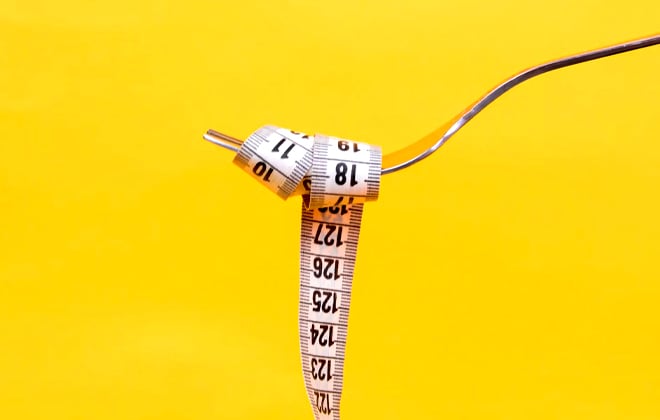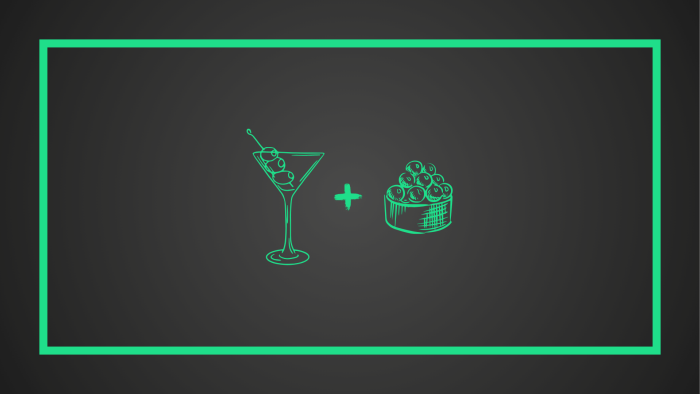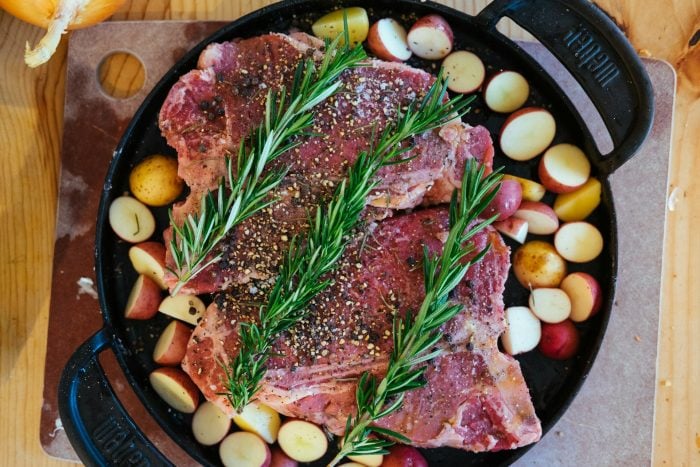Let me get this out of the way. I am not the following: seriously overweight, a fad dieter, nor a glutton for punishment. I do some weight training, running, high-intensity interval training, and gravel biking. I don’t do those to set any records. As a 53 year-old husband and a father of three kids, it’s all about staying in decent shape, preventing injuries, and not having to buy bigger pants. I am the cook in our family, and so I’m surrounded by food all the time. I also enjoy cigars, Scotch, bourbon, and good beer, so I’m not Draconian about my intake. I do try not to overeat or snack too much, but I tend to be more lax on the weekends.
My wife always tells me to do what is sustainable over the long term, and she knows me. As a result, I don’t deprive myself of fats and carbs, but I also make sure I take salads, fish, and lean protein on a regular basis. The down side is that I don’t do well with portion control. The more I exercise, the more I want to eat. I figured I would give intermittent fasting a serious try, not so much because I needed to lose a lot of weight but primarily to see if it could help me drop some excess belly fat and love handles, increase energy levels, and help me improve sleep quality. Although I am not new to fasting, this is the first time I attempted intermittent fasting, otherwise known as IF.
Note: Doctors advise those under 18, those with type 1 diabetes who take insulin, and women who are pregnant or breastfeeding to avoid intermittent fasting. If you have a health condition, you should first consult your primary care physician to see if it’s safe to proceed.
What is Intermittent Fasting (IF)?
People all over the globe have been fasting for spiritual reasons for centuries, and fasting has been known to provide increased focus due to physiological and body chemistry changes. It’s been used for health reasons since at least the 5th century thanks to Hippocrates, who is largely credited as the father of medicine. The notion was that if you were suffering from certain ailments, abstaining from food was a method that could lead to healing for those with problematic health conditions.
Studies have shown that intermittent fasting aids cognition, sensory-motor function, and even physical performance. Essentially, intermittent fasting is a cycle of eating and fasting that typically occurs through the course of a day. Some choose to perform it for longer (24- to 72-hour fasts), and there are certainly a slew of formats. One of the most popular versions is the 16:8, which is a fasting window for 16 hours and an eating window for 8. Others include 14:10, 12:12, 20:4 (Warrior Diet), and OMAD (One Meal a Day). For most beginners, the 12:12, 14:10, or the 16:8 work as the best choices because they’re not nearly as much of a cut back as the Warrior or OMAD, which many intermittent fasting devotees graduate to after their systems acclimate.
Month One
I started out using the 16:8 method. For me, that essentially meant cutting out breakfast. I eat around noon and then eat dinner and finish my eating window around 8 pm, give or take. Initially, it felt like a big sacrifice to give up breakfast. My typical breakfast consists of two scrambled eggs and two slices of sprouted wheat toast. I change it up sometimes with an omelette with no cheese or a bowl of steel cut oats and fresh fruit. Every breakfast includes a cup of coffee. Fortunately, I didn’t have to give up coffee because I drink my coffee black, and it doesn’t break a fast. In fact, it actually helps curb hunger.
The first week wasn’t as bad as I thought it was going to be. Even though I make everyone’s breakfast before I leave for work, it’s so busy getting my family out the door that it keeps me occupied. Once I got to the office, I make a pot of coffee and fill up a bottle of water to get to the noon hour when I can eat. If I get hungry with an hour left, I usually take care of small errands during my lunch period. This got me over the hump, and then I just eat a sandwich and some fresh veggies at my desk after the clock strikes 12. I eat a small snack of fruit or a low-sugar protein bar mid-afternoon and then make dinner for my family at home. Because I didn’t want my wife or kids to suffer, I didn’t make any dinner modifications.
By only the third day, I started to notice how much of a habit eating is. It’s done less out of actual hunger and more out of an emotional dependence on food. No, I don’t mean I cry when I eat. Eating because you depend on it during a certain time of day or eating because your bored, tired, angry, or lonely aren’t feelings someone readily recognizes. We chalk it up as hunger, but oftentimes it’s not true hunger. You don’t have to be obese to have that strong connection to food. The impetus to eat was also based on the time of day, that expectation that I should eat. I started to realize that my body actuall craved water rather than food. As long as I remained hydrated (about a cup of water per hour), I was able to get through the mornings without much trouble. Although I didn’t actually see much of a physical change during the first week of IF, I definitely started to feel differently. For one, the brain fog disappeared, and I found myself more alert throughout the day.
Like many IFers, I found fasting easier during week two and started seeing physical results after two straight weeks. Even my wife started noticing. It helped that I stopped consuming alcohol and snacking. After a month of IF, I was snoring less, sleeping better, and even some strange but positive things started to happen. My sense of smell improved, some knee and wrist pain slowly but surely went away, and even some skin issues cleared up. I had a few skin tags on the back of my neck and a small bump that had been on the front of my neck for years simply disappeared. It was weird, as if my body was saying, “Thanks for easing up on unnecessary food intake so I can focus on healing you up.” I had lost eight pounds and felt remarkable. I was still able to work out on an empty stomach, although I did feel lightheaded during particularly heavy lift days. The results were largely positive, and I felt the only big sacrifice was the satisfaction of a big breakfast and not much else. One big help was the Zero app that tracks IF. I highly recommend it for beginners.
Month Two
By the end of the first month, I had dropped 10 pounds off my 6’1″ frame. I wish I could say it’s been all smooth sailing, but like most semi-serious IFers that was not my case. I was happy with the progress I had made so far, so I started to make some exceptions by giving myself a cheat day on the weekends, meaning I would eat breakfast and sometimes push my fasting window until later than 8 pm. That quickly spread to the entire weekend, and then I lost that measure of discipline from the first month. In other words, I reverted to that emotional connection to food again. After a vacation in Florida with my family, where I attempted IF for a couple of days, I had put back five of the 10 pounds I lost in the first few weeks.
But unlike fad diets, IF is meant to be a lifestyle. It’s not about totally depriving yourself but rather establishing balance. I began to see that my balance was off. Eating breakfast didn’t make me feel better physically, and the temporary emotional satisfaction wasn’t worth it. Brain fog started to set in again, and I felt less in control overall. I began to see the fasting, in its own way, felt really good because I was getting in touch with how humans were meant to eat: not constantly but as necessary. I slowly returned to my habits from the first month but with some important modifications.
Month Three
I’ve hit a rhythm that’s sustainable. I allow some room to lapse, but it’s not regular. I’m back to 16:8 most days of the week. I only eat breakfast when it’s a family thing on the weekends (making blueberry protein pancakes), and I don’t deviate from that. On days when I do that, I try to skip lunch and just eat an early dinner. I’m consuming more water because when I fast, I realize my body craves it. Black coffee is still a daily staple. I was able to get back down to the 10 orignal pounds lost and then a couple more, and this time it took less time and effort. I have found that the key is flexibility without the dependence on a set pattern. I no longer rely on an app to track fasting because it can be discouraging when I forget.
Do I know if I will IF for the long term? I can’t predict that, but the results are clear to me. I feel more rested, more productive, and more alert. I don’t think about food all the time, and that frees me up to do more. My mornings are uncluttered with the burden of worrying about what to eat, and my lunches and dinners are more modestly sized. Things are working for now. Come 2024, I may actually give the more intense IF schedules a try.





